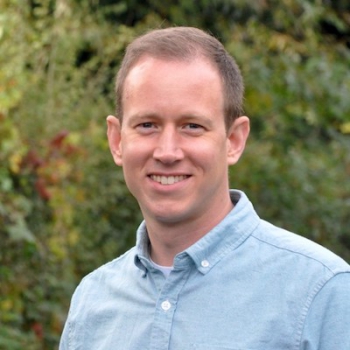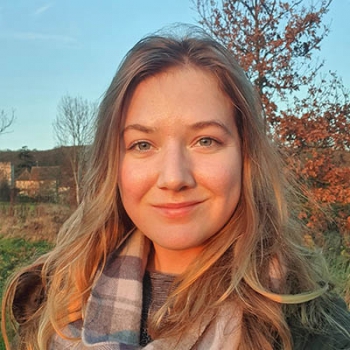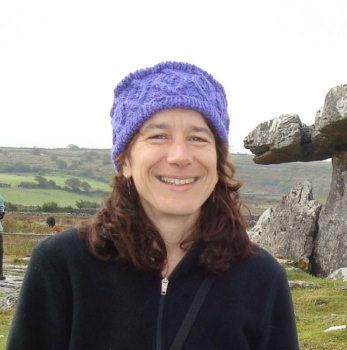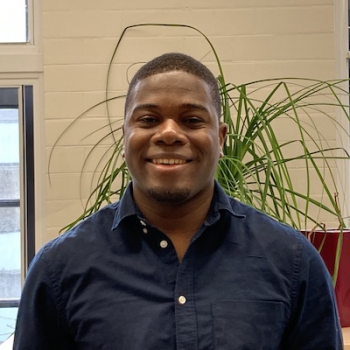Experimenting with non-traditional communication for interdisciplinary environmental research

Can theatre games help catalyse interdisciplinarity for nature recovery?
Authors: E.A. Welden and Jasper Montana
We know that working together across different scientific fields is necessary to tackle today’s environmental challenges. But, that is easier said than done. A wide range of barriers to interdisciplinarity, from research funding mechanisms to organisational structures in academia, consistently prevent different disciplines from connecting with one another(1). The disconnect also comes down to a communication challenge across different research cultures. To overcome these, we have identified a need to break outside of traditional, text-based, academic communication and explore other ways of connecting and communicating across disciplines in environmental research.
We are part of the Leverhulme Centre for Nature Recovery (LCNR) team that have been developing and testing methods that actively ‘practice interdisciplinarity’(2) through our project Innovative methods to connect and communicate between disciplines.
As part of our project, we ran the first of a series of catalytic theatre-based workshops with academics and research administrators at the Old Fire Station Theatre, Oxford, in December 2023. In the workshop, participants drawn from different disciplines within the LCNR were asked to work together to test out a set of pre-designed theatre-based activities intended to catalyse interdisciplinarity. Check out our first two Interdisciplinary Catalyst Activities: Fieldwork tennis and Object of significance.
Why this approach?
While using theatre games to catalyse interdisciplinarity may initially appear strange, this is precisely the point. Putting aside scientific articles and textbooks, we wanted to experiment with ways to use voices and bodies to enhance the communication repertoire for interdisciplinary working. Inspired by Feminist scholars such as Judith Butler(3) and Donna Haraway(4), we wanted to bring into practice theoretical ideas of ‘embodiment’—the political act of being in one’s body—as a subversive way of going against normal modes of academic interaction.
The use of theatre-based approaches in facilitating cross-cultural dialogue, collaboratively exploring the future, and challenging established power dynamics is nothing new in sustainability research(5,6). Much previous work in this area takes inspiration from forum theatre, which is a theory and method that encourages participation amongst actors and audiences (‘spect-actors’) to communicate oppression of peoples and advocate for social and political justice in an embodied way — i.e. in a way that is felt and experienced through enactment(7). This kind of practice is considered to have the potential to transform both participants’ attitudes and everyday practice(8).
What next?
Building on this tradition, our plan is to develop a series of activities that can be used to draw attention to, offer experiences of, and facilitate conversations about some of the barriers and opportunities of interdisciplinary environmental research. Following the success of our workshop in December 2023, we plan to run another series of workshops later in 2024 to test and refine further activities with takeaways for interdisciplinary working. We hope the activities will be transferable to similar interdisciplinary environmental initiatives or training programmes elsewhere.
Developing the activities
The seeds of the catalytic theatre-based workshop began in early 2023 when we first met Lizzy McBain and Emma Webb from Oxford People’s Theatre. Both are theatre professionals with experience of engaging diverse communities through theatre workshops and collaborative projects. Bringing together their depth of experience in theatre games with our knowledge and questions around interdisciplinarity in environmental research, we began collaboratively developing activities that we could test in the LCNR workshop. The games Lizzy and Emma first recommended (and we subsequently built upon) not only drew on a long tradition of warm-ups for theatre, but also the tradition of theatre as politics, allowing us to think about power through embodied play. The wealth of knowledge of Lizzy and Emma has been crucial, as well as resources such as Games for Actors and Non-Actors by Augusto Boal.

In developing the activities, we wanted to get to the crux of interdisciplinary communication challenges. Activities needed to be thought provoking and memorable. We worked together to critically reflect: Did the activity spark questions in us that we want discussed? Did they get us thinking and moving in interesting ways? Through this iterative development process, where we tried one version of an activity, then another, then circled back to a previous one, we selected and refined the activities to run in the initial workshop.
What were the activities like?
The first workshop ran for three hours and included three activities. To provide a brief taster, one of the activities we ran we called Object of Significance. With this activity (follow link for more detailed instructions), we put participants into three groups, with each group receiving an ‘object of significance’. In our case this object was three almost-identical pinecones. Each group was then also given an identity and an objective: one group represented members of a local community and were tasked with coming up with why the pinecone was important to their community; another group were members of a conservation organisation and tasked with coming up with how to protect the pinecone; and the last a group were scientists tasked with coming up with how to study the pinecone. After discussing this amongst their groups, everyone then regrouped, sharing the ‘rituals’ they came up with regarding the object. Then, they were tasked with coming up with a way forward for using, protecting, and studying the pinecone, which speaks to all the held values by each group. Through this activity and discussion, the participants thought through how ‘meanings and values matter,’ with different groups holding different meanings and values for the same object, like in interdisciplinary research spaces.
Want to give them a try?
This is just one of up to ten Interdisciplinary Catalyst Activities that we aim to produce by the end of 2024. The first two – Fieldwork tennis and Object of significance – are available on the project website and can be replicated by others interested in interdisciplinary environmental research. We invite you to give them a try.
Annie E.A. Welden, School of Geography and the Environment and Leverhulme Centre for Nature Recovery, University of Oxford.
Jasper Montana, School of Geography and the Environment; Leverhulme Centre for Nature Recovery, University of Oxford; Centre for the Public Awareness of Science, Australian National University.






